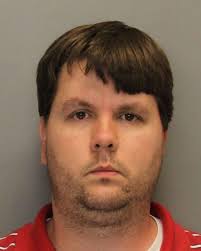Read this
 ed into a heroin epidemic, especially in the midwest and the Northeast, where I’m from. I know they are related, and have been devastating to families and communities.
ed into a heroin epidemic, especially in the midwest and the Northeast, where I’m from. I know they are related, and have been devastating to families and communities.
But I had a hard time getting past the difference between the societal and governmental reaction to this drug scourge, versus crack in the 1980s — which begot the whole three strikes policy that saw people going away for life for a lousy $30 drug buy. Prescription pain medication abuse wasn’t treated the same way. Plenty of people died from the crack epidemic, too. Plenty of lives, families and communities were destroyed. But now pain meds and heroin are affecting white middle class kids and their parents! So suddenly it’s everybody’s problem.
Still, when I saw Dreamland on the table at our new Books & Books at The Studios of Key West I couldn’t resist picking it up — and I’m so glad I did. This is one of the best works of reported nonfiction I have read in years.
Quinones expertly traces the two streams that converged to create our current opiate epidemic: the over-prescribing of opiate medications, on the (mistaken) assumption that they weren’t terribly addictive and the marketing of black tar heroin by young men from one particular region of Mexico.
The pain pills were the result of doctors who genuinely wanted to help people – and drug companies (and less scrupulous doctors) that wanted to make money. All of them relied to an inordinate extent on a short letter to the New England Journal of Medicine about the addictive qualities of opiates – a letter that was later cited as a “landmark study” in the popular press and pharmaceutical sales pitches.
The Mexican heroin trade looks almost admirable by contrast — because the “Xalisco boys,” as Quinones calls them, created an insanely successful, resilient web of heroin sales that relied on pagers (and later cell phones), moving small amounts and an apparently infinitely sales force. They didn’t carry guns and they only imported small amounts and carried even smaller amounts when they sold. It was far easier to deport them than to prosecute them. And the drugs were delivered to clients in fast food parking lots, not scary street corners.
Quinones assembles an astonishing amount of information and tells the story so well you don’t feel like you’re reading a treatise or a sociology text. And he takes time, when appropriate, to address that beef I have with the way the opiate epidemic has been treated – because now the kids of people in power are getting affected.
Listen to that
 The other piece of excellent reporting I’ve come across recently is the second season of Breakdown. That’s the podcast produced by the Atlanta Journal Constitution. They said forthrightly that they were inspired by Serial but in some ways I prefer it. It’s more straight-up reporting, with less introspection. And in the first season, they really addressed the systemic problems facing the defendant — and all poor defendants in Georgia.
The other piece of excellent reporting I’ve come across recently is the second season of Breakdown. That’s the podcast produced by the Atlanta Journal Constitution. They said forthrightly that they were inspired by Serial but in some ways I prefer it. It’s more straight-up reporting, with less introspection. And in the first season, they really addressed the systemic problems facing the defendant — and all poor defendants in Georgia.
Ross Harris left his son in a car and the boy died. Was it murder, or a horrible accident?
Like Serial, the second season is not a question of did-he-or-didn’t-he. It’s a what-crime-did-he-commit (if any). And they’ve picked a doozy — Ross Harris, the young Atlanta father who left his toddler son in the car all day. The son died. Harris, it turns out, was a serial philanderer, making the defense’s case even harder.
Throughout, AJC court reporter Bill Rankin is a terrific guide to the case and to the court system in general. He’s knowledgable and good at explaining proceedings for laypeople, as well as consulting attorneys and other experts who know the system from the inside. It’s all exactly what I want from a journalism podcast — going deeper into a story than you possibly could in a 15-inch newspaper story or a 4 minute radio feature. Bravo.


 joyed her book, which is set in the run-up to Fantasy Fest … with a hurricane bearing down. It didn’t even give me too much of a Wilma flashback. I especially admired how she addressed the tensions among Conchs, yearround locals and snowbird socialites. That’s a large — and growing — aspect of life down here, at least from my perspective.
joyed her book, which is set in the run-up to Fantasy Fest … with a hurricane bearing down. It didn’t even give me too much of a Wilma flashback. I especially admired how she addressed the tensions among Conchs, yearround locals and snowbird socialites. That’s a large — and growing — aspect of life down here, at least from my perspective.
 cellent local library already had a copy. Frank is a screenwriter and this is a first novel – my opinion has been that screenwriters write excellent thrillers and crime fiction because they know how to move a plot along, as well as how to write dialogue. This one bolsters my theory and is also an excellent option for people who are jonesing for Elmore Leonard now that the master has left us. Frank wrote the screenplays for Out of Sight and Get Shorty and it shows, though he doesn’t really have Leonard’s funny vein. He’s not trying to be funny, though, so that’s cool.
cellent local library already had a copy. Frank is a screenwriter and this is a first novel – my opinion has been that screenwriters write excellent thrillers and crime fiction because they know how to move a plot along, as well as how to write dialogue. This one bolsters my theory and is also an excellent option for people who are jonesing for Elmore Leonard now that the master has left us. Frank wrote the screenplays for Out of Sight and Get Shorty and it shows, though he doesn’t really have Leonard’s funny vein. He’s not trying to be funny, though, so that’s cool. (Lippman! Flynn! Abbott! Locke! Nunn! Faye! Gerritsen! George!).
(Lippman! Flynn! Abbott! Locke! Nunn! Faye! Gerritsen! George!).




